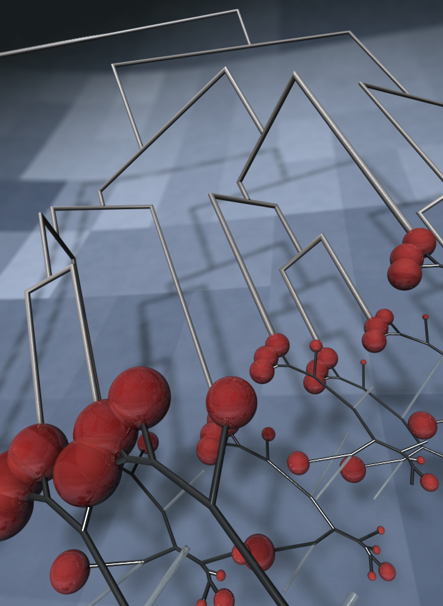Mazitschek Lab
Read BioExploring and understanding biological systems at the molecular level with a tool set offered by modern chemistry is the common motif of my research interests. As a Chemical Biologist I find it intriguing to use small organic compounds, either derived from nature or by rational design, to study complex biological processes with a resolution that is neither offered by genetic nor biochemical approaches. Consequently the research in my lab is centered on the interface of biology and organic synthetic chemistry, including the synthesis of diversity-oriented-synthesis (DOS) derived libraries for biochemical and in vitro screening, the development of novel assay systems for high-throughput screening, as well as the development of small molecule tool compounds for target identification and imaging application.

Recent Publications
Zhang A, Mei X, Lyu Q, Feng R, Xu J, Yan J, Zhai S, Payne NC, Wang Y, Mazitschek R, Chang Y, Qiu X
Time-Resolved "Barbecue" Förster Resonance Energy Transfer for Sensitive and Homogenous Detection of Alginate. Anal Chem. 2025;97(50):27578-27588 - PMID: 41384866 - DOI: 10.1021/acs.analchem.5c03101Stopka SA, Bodineau C, Baquer G, Lin JR, Hossain MA, Martinez CJ, Regan MS, Ruiz D, Fletcher SM, Pourquié O, Lutsenko S, Payne CN, Agar JN, Mazitschek R, McDannold NJ, Sorger PK, Santagata S, Agar NYR
Spatial Profiling of Elements through Matrix-Assisted Laser Desorption Ionization Mass Spectrometry Imaging. Anal Chem. 2025;97(45):25334-25345 - PMID: 41201007 - DOI: 10.1021/acs.analchem.5c05632Bopp S, Fagbami L, Deik A, Taccheri C, Pant A, Luth M, Chen D, Tye MA, Ullah I, Kreuzer J, Morris R, Haas W, Winzeler EA, Clish C, Lukens AK, Mazitschek R, Wirth DF
Disruption of P. falciparum amino acid transporter elevates intracellular proline and induces resistance to Prolyl-tRNA synthetase inhibitors. Cell Chem Biol. 2025;32(10):1293-1302.e5 - PMID: 41061700 - DOI: 10.1016/j.chembiol.2025.09.007Zhu Q, Fischer G, Cheng SS, Payne NC, Peter D, Mody AC, Arce-Solano S, Shen D, Lin Z, Mazitschek R, Kessler D, Woo CM
Enzyme-Activated Sugar-Coated Bifunctional Degraders. J Am Chem Soc. 2025;147(38):34672-34680 - PMID: 40937862 - DOI: 10.1021/jacs.5c09843Lloyd HC, Li Y, Payne NC, Zhao Z, Xu W, Kroupova A, Zollman D, Long T, Kabir F, Chen M, Freeman R, Feng EY, Xi SY, Hsu YC, Ciulli A, Mazitschek R, Woo CM
A method for the detection and enrichment of endogenous cereblon substrates. Cell Chem Biol. 2025;32(8):1028-1041.e13 - PMID: 40782806 - PMCID: PMC12360616 - DOI: 10.1016/j.chembiol.2025.07.002- More publications ...
Research projects
One major focus in my group is in the development of subtype specific modulators of chromatin modifying enzymes, such as histone deacetylase (HDAC) inhibitors. HDACs have originally been discovered as chromatin modifying enzymes, however, recent research suggests that regulation of non-histone proteins by acetylation is more abundant than originally anticipated and comparable to other posttranslational modifications. The development of HDAC inhibitors (as tool compounds or as drug) has paid little attention to subtype specificity, which is limiting the applicability of these compounds. Our goal is it to understand the features that convey selectivity and to develop tools to selectively study the function of HDACs isoforms (in particular class II enzymes) in in vivo and in vivo systems.
In addition I do have a strong interest in dieseases that are neglected by industrial research due to the lack of financial interest. In particular my group has been focusing on the discovery of novel antimalarials and the identification of previously untargeted pathways that are vital to the Plasmodium parasite and suitable for chemotherapeutic intervention. The identification of the molecular target(s) of active compounds will not only allow to study their underlying biology in P. falciparum but also accelerate the development of novel medicines.
News
Kritika Singh (Mazitschek Lab), a bioengineering and chemistry student at Northeastern who has dedicated herself to tackling global health issues, has been named a 2020 Rhodes Scholar, considered the most prestigious academic honor for U.S. college students. Congratulations, Kritika!
Ralph Mazitschek, PhD has received the Young Mentor Award from Harvard Medical School (HMS). The award was established in 2005 to recognize faculty who are still in the early stages of their career, but are devoting time to mentor others. Congratulations, Ralph!
Ralph Mazitschek, PhD received new patent for Compounds for Treating Infectious Diseases. Susan Lindquist, Catherine McLellan and Luke Whitesell, MD were co-inventors.
MIT News features work of Mazitschek Group on microarray identification of small molecules that enhance synaptogenesis. (pdf)